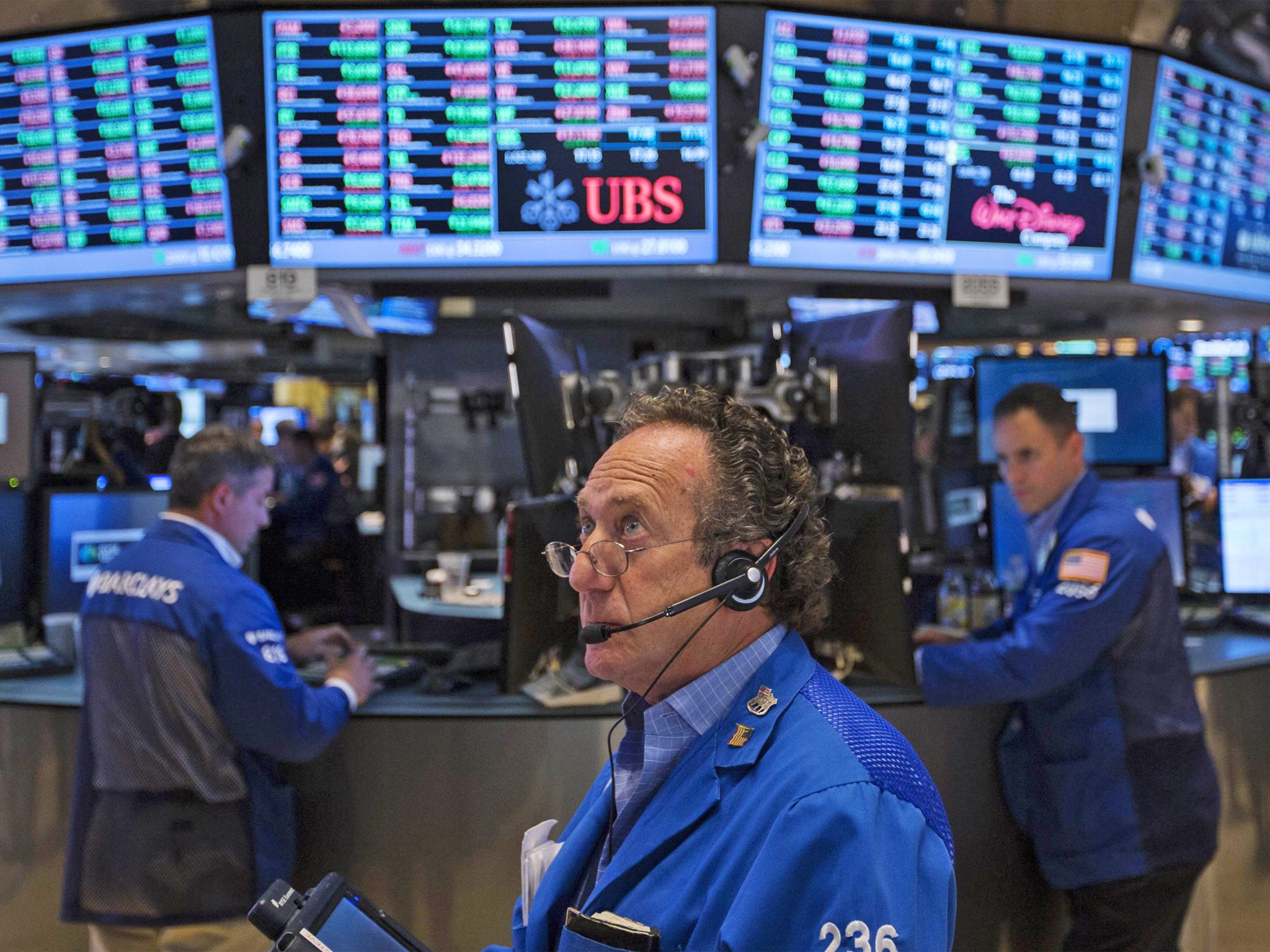It only takes two seconds to make a killing on today's stock markets
Investigators are examining how investors paid extra to get a vital head start over influential market data

Two seconds seems like an insignificant amount of time. But on today's stock markets it could be worth many millions of dollars, with powerful computers programmed to buy or sell stocks moments after they are fed data about companies or the economy. In the time it used to take a pit trader of yore to grab his coffee mug and raise it to his lips – raise it, mind you, not take a sip – today's computerised trading machines can bank enviable profits. Equally, two seconds too late, and they could be left nursing bruising losses.
Until the intervention of New York's attorney general Eric Schneiderman this week, a small group of investors could buy a head start when it came to the widely followed, market-moving consumer sentiment report produced by the University of Michigan. Seen as an important barometer of the health of the US consumer, it is pored over by traders trying to gauge the outlook for the world's largest economy. That affects the prices of stocks in New York, London and beyond.
The university has an arrangement with Thomson Reuters, the financial data conglomerate, which distributes the survey. Until this week, investors willing pay an additional fee reported to be about $6,000 (£4,000) a month would get a look at the data, which is released twice monthly, two seconds before other clients.
That advantage "is more than enough time" for high frequency traders to get a head start on other subscribers, the attorney general's office said. Thomson Reuters is said to pay the university $1m a year for the rights to distribute the data, although it would not comment on details of its commercial arrangements.
"Two seconds is a lifetime within high frequency trading," Adrian Fitzpatrick, head of dealing at the London-based Kames Capital, said. "Hundreds of thousands of orders can be generated in milliseconds."
The attorney general's inquiry is still in its early stages, as his office looks into the scope and impact of the practice. But in the markets, the growing influence of computerised trading, where only a second separates fat profits from heavy losses, is already well known by investors around the world.
Of the thousands of firms that trade on the US markets, for example, only about 2 per cent are in the business of high-frequency computerised trading. But their activities account for more than 70 per cent of all trading on those markets, according to Mr Fitzpatrick.
"The securities markets should be a level playing field for all investors," Mr Schneiderman said when he announced that Thomson Reuters, which has not been accused of any illegality, had agreed to cease sending out the Michigan data early to clients who pay extra. The result is that, from Friday, the survey will be sent out to all subscribers at the same time. Non-subscribers will get their hands on the figures five minutes later.
The investigation came about when a former Thomson Reuters employee went to the authorities in April, prompting Mr Schneiderman's office to look into whether the way the data was distributed violated a powerful New York state law called the Martin Act, which dates back to the 1920s. It allows prosecutors to pursue claims against companies without having to show that the company in question intended to defraud anyone, or that any fraud did in fact take place. It is a potentially far-reaching statute that in recent years came to prominence when it was wielded by the former New York attorney general Eliot Spitzer.
He made public his intentions to re-enter the political arena this week, with ambitions to become the New York City Comptroller, after being forced to resign in 2008 following disclosures of his involvement with an escort agency.
Mr Spitzer used the law to go after Merrill Lynch in a now-famous inquiry of the way analysts' assessed technology stocks that boomed and then crashed just as suddenly when the dot.com bubble burst, leaving investors with large losses. He also used the act to go after banks, securing headline-grabbing settlements thanks to the low bar of proof required by the law.
While this week's focus was on the Michigan survey, it is understood the attorney general's office is also looking at the broader issue of whether the early dissemination of data might fall foul of New York state law.
In a statement, Thomson Reuters said it "strongly believes that news and information companies can legally distribute non-governmental data and exclusive news through services provided to fee-paying subscribers".
It added: "It is widely understood that news and information companies compete for exclusive news and differentiated content to help their customers make better informed trading and investment decisions."
Tweet mystery: How Obama hoax sent stocks plummeting
How far can the stock market shift in a matter of seconds and minutes? The world was presented with a stark illustration in April, when the Associated Press Twitter feed was compromised.
A message was sent out using the news agency's account at 1.07pm eastern time, claiming that the White House had been hit by two explosions. "Barack Obama is injured," it concluded.
It was plainly false. The White House press secretary clarified that the President was fine. Word that the tweet was the result of a hack was out within minutes.
In those minutes, however, the tweet, reportedly the handiwork of Syrian hackers, triggered a more than 100-point fall in the Dow Jones industrial average. On the S&P 500, stocks shed as much as $136bn in value in two or so minutes.
They later recovered – but the Twitter crash showed just quickly markets can move in an environment which is dominated by computers.
Join our commenting forum
Join thought-provoking conversations, follow other Independent readers and see their replies
Comments